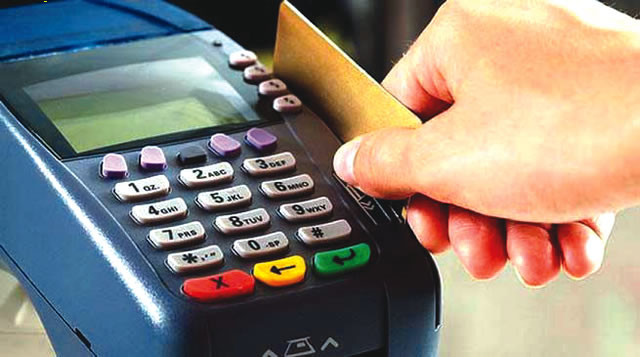Point of Sale (POS) terminals processed transactions worth N223.27 trillion in 2024, marking a dramatic increase from N110.35 trillion recorded in 2023, according to the Central Bank of Nigeria’s (CBN) quarterly statistical bulletin.
The data reflects the growing preference among Nigerians for digital payment channels amid persistent cash shortages and operational challenges in the traditional banking system.
The total number of POS transactions rose by 32.7%, from 9.85 billion in 2023 to 13.08 billion in 2024. In contrast, Automated Teller Machine (ATM) transactions remained largely stagnant, rising slightly from 1.012 billion to 1.022 billion. The value of ATM withdrawals also showed marginal growth, increasing from N28.21 trillion to N29.12 trillion, highlighting a gradual shift away from cash-based transactions.
Monthly Surge Reflects Changing Consumer Behaviour
Monthly figures from the CBN reveal a consistent upward trend in POS transaction values throughout the year. In January 2024, POS transactions surged to N11.50 trillion, more than double the N5.28 trillion recorded in January 2023. This pattern continued with February reaching N12.46 trillion, and March climbing to N14.73 trillion.
The upward momentum persisted through the year:
April: N13.74tn (from N8.55tn in 2023)
May: N13.91tn (from N8.30tn)
June: N19.57tn (from N8.31tn)
July:N15.24tn (from N8.31tn)
August:N18.90tn (from N9.10tn)
September:N19.69tn (from N9.40tn)
October:N22.27tn (from N10.60tn)
November: N29.42tn (from N11.28tn)
December: N31.84tn (from N13.20tn)
While ATM withdrawals peaked in December at N3.91 trillion, POS withdrawals maintained the lead, underlining consumers' increasing reliance on agency banking and digital channels.
Cash Shortages and Rising Charges
Despite the widespread adoption of POS terminals, the year was marred by cash scarcity and arbitrary increases in transaction charges, particularly in December 2024, when POS operators raised fees by up to 100%, charging N200 per N5,000 withdrawal. This came amid reports of empty ATMs and commercial banks limiting cash disbursements to as low as N10,000–N20,000 per customer.
The Central Bank responded by sanctioning nine Deposit Money Banks, including Fidelity Bank, First Bank, and Zenith Bank, with a combined fine of N1.35 billion for failing to comply with ATM cash availability directives during the festive period.
Electronic Transfer Levy and Market Impact
The Electronic Money Transfer Levy (EMTL) of N50, enforced from December 1, 2024, also played a role in the high cost of digital transactions. Applied to all inflows of N10,000 and above, the levy affected not only commercial banks but also fintechs like OPay, Kuda, and Moniepoint, which control nearly 70% of the POS market.
Surge in POS-Related Fraud
Alongside increased usage, POS terminals became a hotspot for financial fraud. The FITC Fraud and Forgeries Report for Q1 2024 revealed that POS fraud rose by 31.12%, from 2,683 cases in Q4 2023 to 3,518 cases in Q1 2024. POS-related fraud accounted for 30.67% of all fraud cases recorded in that quarter, surpassing ATM and mobile fraud in volume.
CBN Introduces Stricter Controls
In response, the CBN introduced stricter regulatory measures, including:
A daily cash-out limit of N100,000 per customer at POS terminals
A cumulative daily limit of N1.2 million for POS agents
A weekly cash withdrawal limit of N500,000 per customer
Mandatory use of float accounts for all agency banking operations
Real-time transaction reporting via the Nigeria Inter-Bank Settlement System (NIBSS)
Oversight of agents' Bank Verification Number (BVN)-linked accounts to prevent misuse
The apex bank emphasized that principals of agency operations will be held fully accountable for their agents’ actions. Failure to comply with these directives will attract penalties, monetary fines, and administrative sanctions.
The exponential rise in POS transactions in 2024 illustrates the evolving dynamics of Nigeria’s payment ecosystem. While it signals increased digital adoption and financial inclusion, it also raises critical concerns about security, regulation, and consumer protection. The CBN’s latest interventions underscore the urgency to balance digital growth with oversight to ensure trust in the financial system.




















